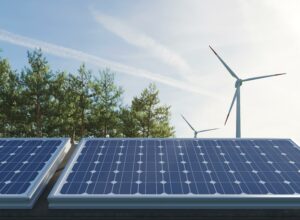Fossil fuels are quickly losing power to clean, sustainable energy alternatives in the global energy discourse. Renewable energy sources like solar, wind, and hydro power are no longer optional; they are crucial for a robust economy. Through its collaborations, training programs, and local initiatives, the Society of Energy Engineers and Managers (SEEM) has been a prominent voice in India promoting renewable energy, particularly solar.
As a non-government/not-for-profit organisation, SEEM is dedicated to providing its members with networking and skill-building opportunities through the planning of workshops, training sessions, etc. This is done through its 15 chapters and 7 centres, which are spread over 22 states. SEEM collaborates with governmental organisations to carry out policies and initiatives that promote the use of renewable energy sources in a range of industries. Here are five compelling reasons why SEEM supports the switch to renewable energy sources and how its work is strengthening communities, governments, and businesses nationwide.
1. Renewable energy is a scalable alternative
Renewable energy sources are currently providing a sizable amount of the world’s electricity consumption. Numerous solar power systems situated on rural microgrids and business rooftops in Kerala serve as examples of the scalability of solar solutions. To assist local companies and organisations in achieving sustainable electricity at scale, SEEM frequently hosts seminars on solar panel size and integration.
2. Renewable energy is reliable
Renewable energy is a reliable source of energy, as it is based on its availability, supply, and location. Misconceptions about renewable energy include that the sun and wind cannot be relied upon for electricity, but this is incorrect. Renewable energy includes six sources: solar, wind, biomass, geothermal, hydroelectric, and ocean. Wind and solar are variable, while the rest can be turned on and off as needed.
3. Renewable energy reduces the carbon footprint
Using fossil fuels like coal, oil, or natural gas may result in higher energy costs, which can put a strain on corporate consumers’ operating budgets. Globally, petrol prices are rising quickly due to the present geopolitical situation. Compared to competitors that utilise renewable energy, this might mean paying higher energy prices. You can protect the environment and save money on your energy bills by using solar energy.
Switching to renewable energy, however, may help you establish your company as a responsible and environmentally friendly stakeholder. Additionally, businesses are forced to transition to renewable energy sources in order to obtain a competitive advantage over their rivals, as investors and customers want a greener supply chain.
4. Creates jobs and wealth
Planning for a low-carbon economy requires careful consideration of employment options. The development of renewable energy has been given top priority by many governments, both to fulfil global climate objectives and cut emissions and to pursue wider socioeconomic advantages.
The general trend of the employment graph demonstrates that, even in the face of adverse occurrences like COVID-19, the sector consistently produces socioeconomic benefits. Every year, IRENA – International Renewable Energy Agency updates its estimation of employment in renewable energy globally. According to the latest statistics, there were around 12 million direct and indirect workers in the industry in 2020. SEEM, which began its efforts in 2005, has since grown to become a network of over 900 people working in a variety of roles as consultants, industry professionals, energy sector specialists, and entrepreneurs.
5. Renewable energy encourages nations and businesses to become self-sufficient.
India’s economy has grown very quickly, yet energy is still in short supply. India’s robust economic expansion is increasing the country’s need for energy, demanding the use of more energy sources. The International Renewable Energy Agency (IRENA) estimates that 25% of India’s energy needs may be satisfied by renewable energy. By 2030, about one-third of the nation’s electricity might come from renewable sources. The government is dedicated to increasing the usage of renewable energy sources. It is actively pushing green energy and working on several significant sustainable power projects.
In every state, the Indian government aims to establish a “green city” that is fuelled by renewable energy. To mainstream environmentally friendly electricity, the “green city” will employ waste-to-energy plants, solar parks on the outskirts, electric mobility-enabled public transportation systems, and solar rooftop systems on every residence.
The emphasis on enhancing self-sufficiency and decreasing dependency on externally imported resources, such as coal, natural gas, and oil, has only grown in light of recent geopolitical events. To achieve energy independence, more nations are turning to renewable energy sources.
If you want to be part of a sustainable future, then it’s time to adopt renewable energy like solar energy. As the number one solar company in Kerala, GSL Energy Solutions offers a range of energy services to meet the requirements of commercial and residential buildings. We specialise in on-grid, off-grid, and hybrid systems, as well as solar water heaters, pumps, and ACs. Join the trend towards a more sustainable and greener future by leveraging renewable energy sources.






